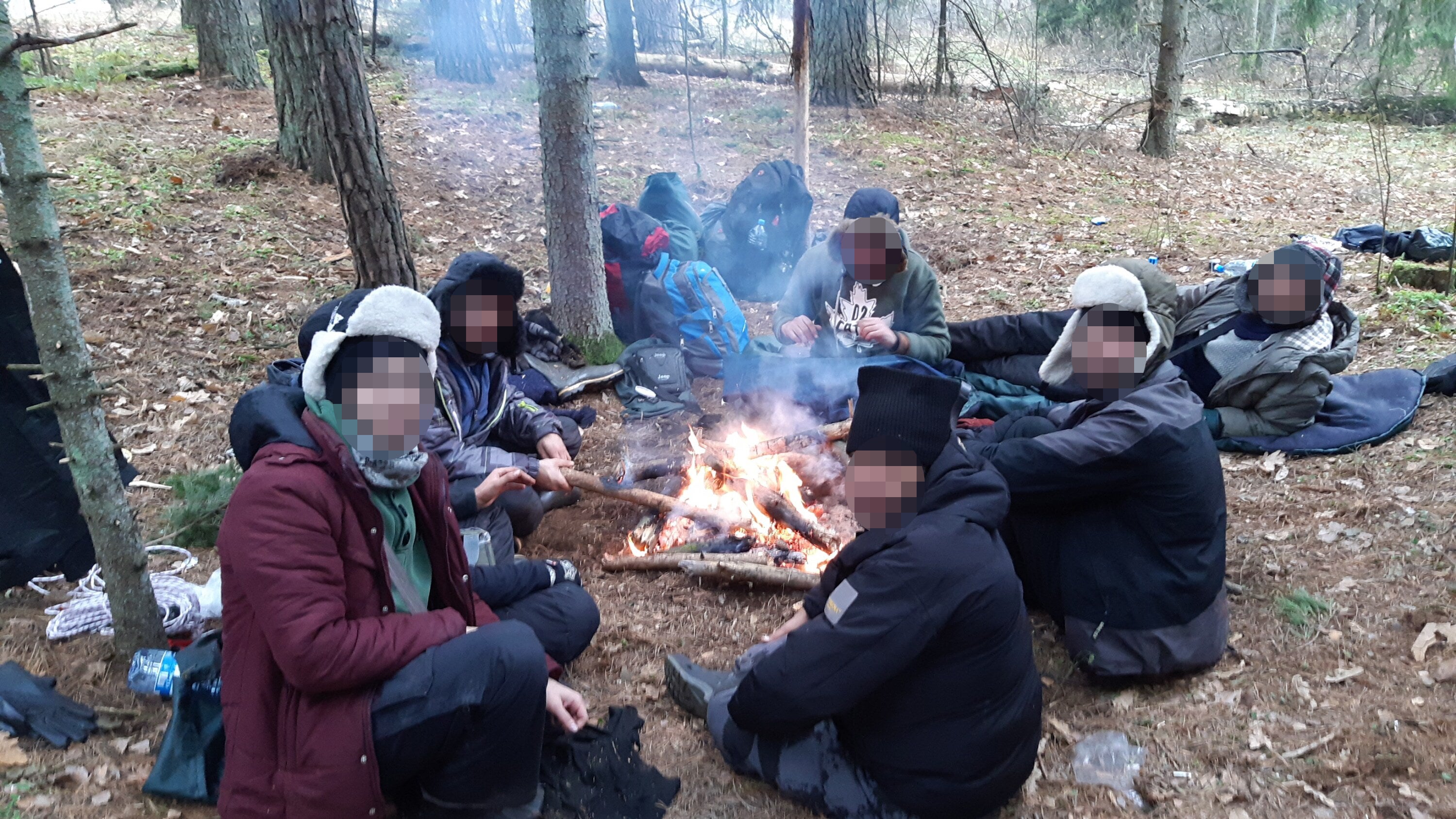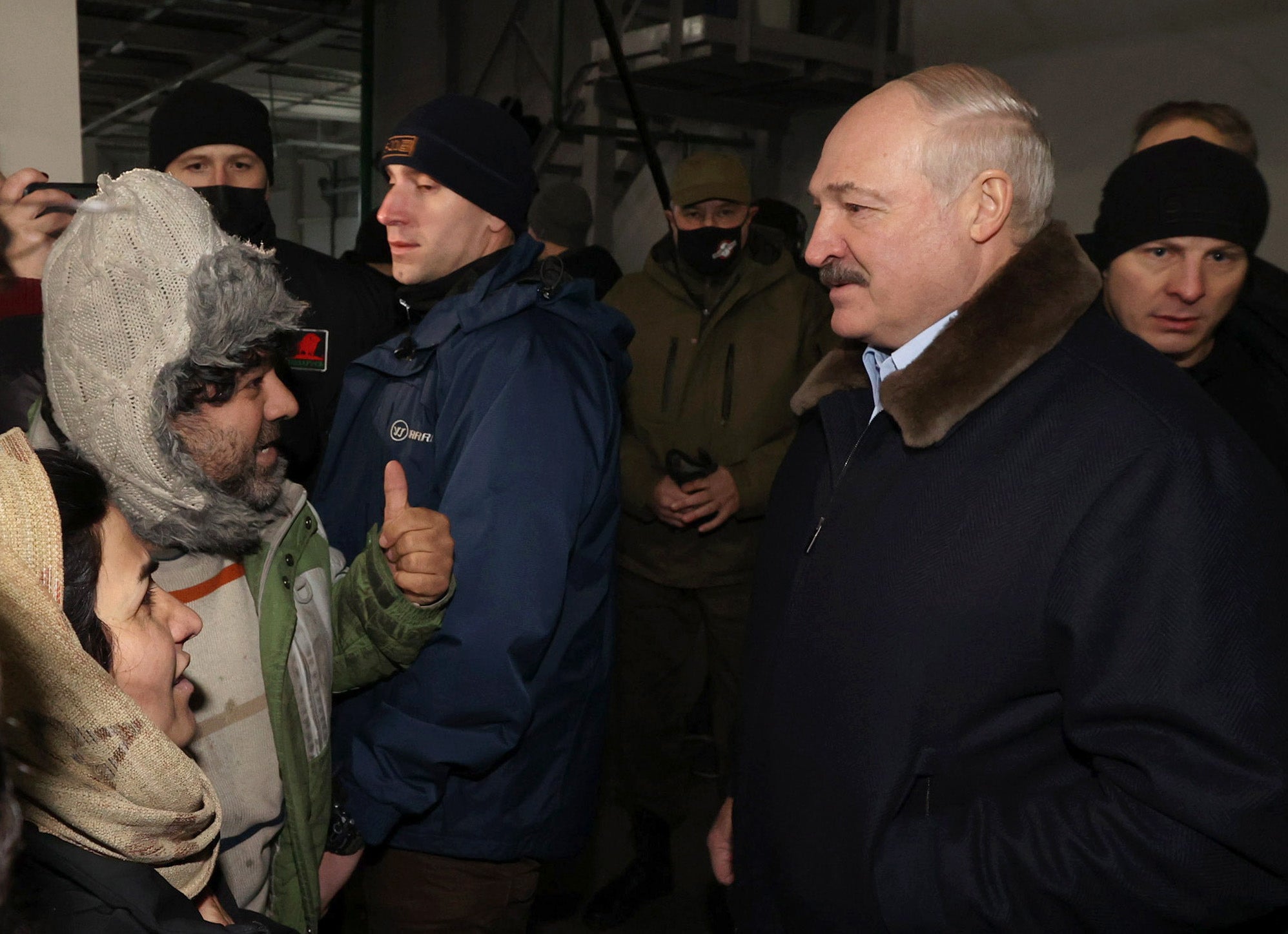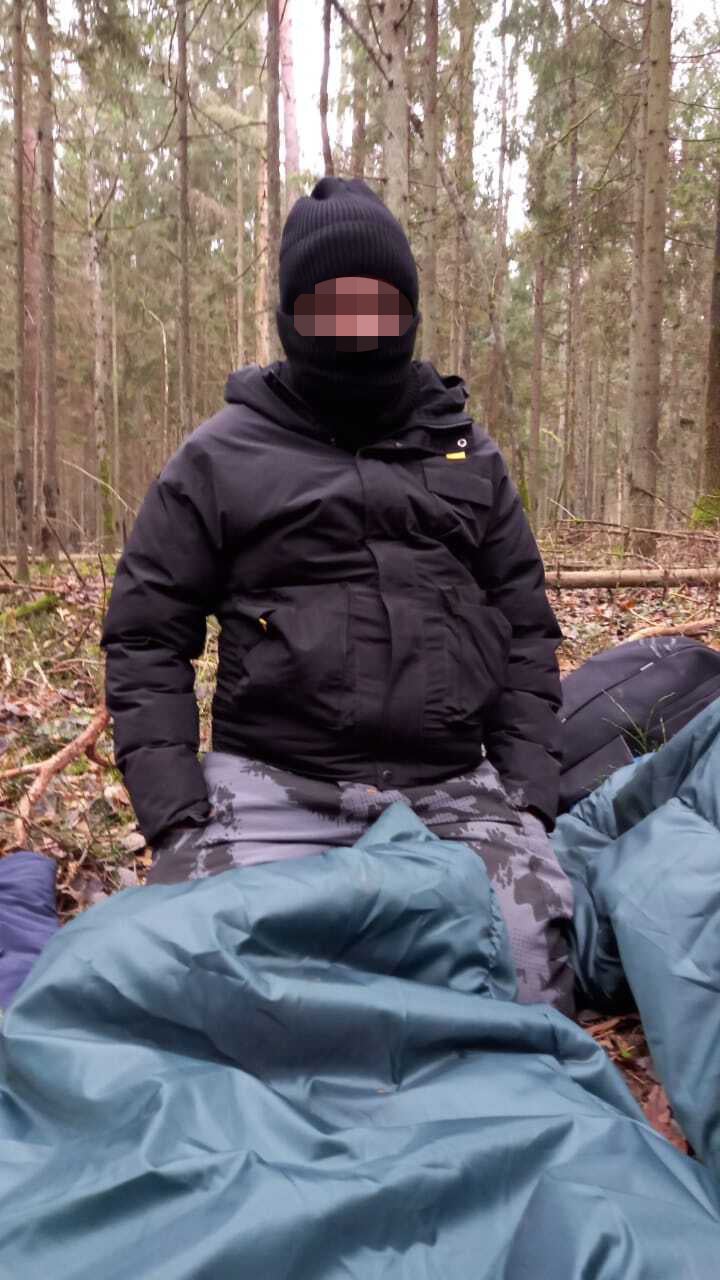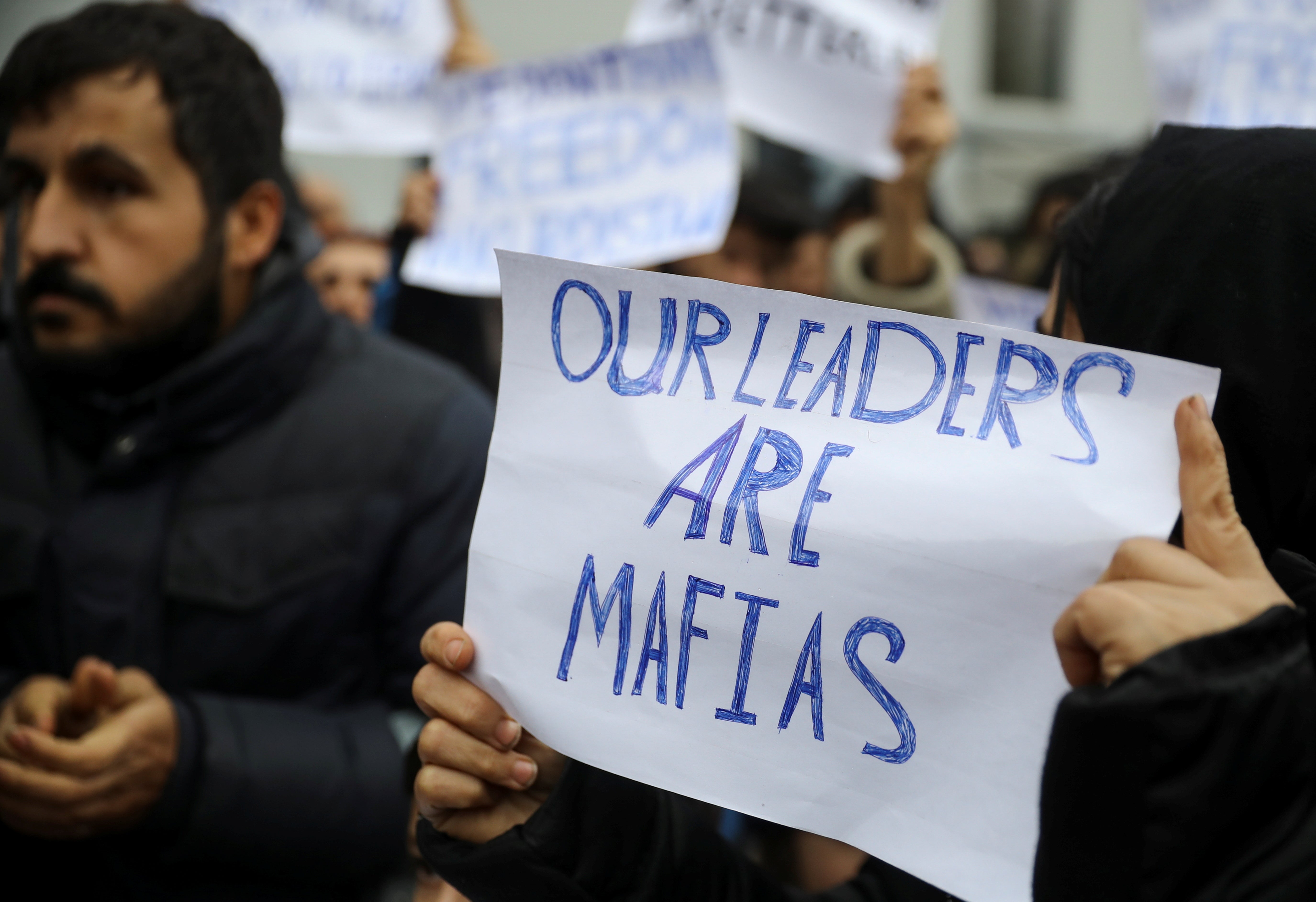The migrants who got through the Polish border, after paying Belarus troops
People trapped in ‘no man’s land’ between Belarus and Poland say they have passed in to the European Union after paying $2,000 to soldiers from Minsk, they tell Bel Trew


Your support helps us to tell the story
From reproductive rights to climate change to Big Tech, The Independent is on the ground when the story is developing. Whether it's investigating the financials of Elon Musk's pro-Trump PAC or producing our latest documentary, 'The A Word', which shines a light on the American women fighting for reproductive rights, we know how important it is to parse out the facts from the messaging.
At such a critical moment in US history, we need reporters on the ground. Your donation allows us to keep sending journalists to speak to both sides of the story.
The Independent is trusted by Americans across the entire political spectrum. And unlike many other quality news outlets, we choose not to lock Americans out of our reporting and analysis with paywalls. We believe quality journalism should be available to everyone, paid for by those who can afford it.
Your support makes all the difference.Two desperate Syrian refugees who risked their lives to sneak across the border to Poland say they were only successful because Belarusian soldiers had helped them cross.
Abu Mohammed, who had made the long journey from war-torn northern Syria, claims the soldiers even charged $2,000 (£1,500) to transport them to the perfect spot and to cut the razor wire.
“They took us to what they called ‘no man’s land’ before the Polish border where we stayed for four days with no food or water, waiting for their orders," Abu Mohammed tells The Independent from Germany, where he arrived two weeks ago and is now claiming asylum.
“After that, a soldier came and told us to prepare ourselves to move. They put me with another 15 or 20 people in a small car and took us to the border. There I saw a soldier with pliers, he cut the razor wires and we crossed.”
Saad, who crossed three weeks earlier than Abu Mohammed, says they were also approached by the army when their first attempt failed and they were deported back to Belarus.
“The soldiers took us to another point where we could cross. The problem was that they put 12 of us in a small car that can fit only five or six persons. I have an old leg injury from an airstrike in Syria, and the wound was opened again and started bleeding,“ Saad says, sharing photos of his gaping wound.
“Finally, the car reached the point where we could cross, the soldiers cut the wires and we found ourselves again in Poland,” he adds.
Thousands of people mostly from war-ravaged Syria and Iraq, have over the past few months been lured to the European Union’s doorstep by easy visas offered by Belarus. Most are fleeing conflict or destitution at home, and aim to reach Germany or other European countries. They have paid thousands of dollars to travel agents, smugglers and, apparently, Belarusian soldiers.
In total, there have been more than 36,000 attempts by vulnerable asylum seekers to cross the border since the start of the border crisis, according to the Polish authorities. The most recent was Wednesday night where the border guard said that a group of 200 people tried to cross. The Polish authorities accused Belarusian soldiers of having “blinded the Polish services with strobes and lasers” to assist the crossing.

The European Union and other western states have accused the Belarusian president, Alexander Lukashenko, of deliberately encouraging the migrants, using them as pawns in retaliation for sanctions imposed after he claimed victory in a disputed 2020 election.
The Belarus president has vehemently denied orchestrating or being responsible for the crisis, but he did admit in an interview with the BBC last week that it was “entirely possible” that his soldiers had helped asylum seekers cross to EU countries. In the same interview, he said: “I won’t even look into this.”
Caught in the crossfire as the countries continue to face off against each other are the migrants and refugees.
Conditions are so dire at the border that at least 13 people have died since September according to the Polish Border Guard.
It is only going to get worse, as the first snow of the winter fell in recent days, according to Maciej Mandelt, who works for Grupa Granica, a network of 14 Polish charities that has been rescuing people in the border areas.
“It is extremely cold, we are still finding people in terrible states. We have seen hypothermia, thirst and hunger,” he adds.
He says adding to the nightmare was the fact that medics often have to walk on foot for an hour to locate the migrants who are camping deep in forested areas.

Saad, who is originally from Zabadani near the border with Lebanon, describes how his group came close to death. After crossing to Poland they camped in a freezing swamp, where they ran out of food and water. “We were exhausted and thirsty in the middle of the wilderness. We used an umbrella to collect water and licked the tree leaves for water drops,” he adds.
He says he only survived as a humanitarian organisation rescued them and took him to a hospital where his injury was also treated.
Many others have failed to cross. As conditions have deteriorated and security tightened, many have been forced to return home. The Kurdish authorities in Iraq told The Independent so far they have repatriated 400 Iraqi Kurds who were trying to make it to Europe back to Kurdistan and have 700 who are on the waiting list for the next flights.
But there are still large crowds stranded in Belarus: 2,000 people are currently staying at a warehouse facility near the border with Poland. President Lukashenko has said that in total 7,000 migrants remain in the country. On Friday, the Belarusian leader visited a migrant centre close to the Polish border and said he would not force anyone to return home.
Among migrants at the border is Qasim, who arrived in Minsk from Beirut on 8 November, via a free tourist visa.
Like Saad, Qasim initially fled Syria for Beirut but said he was forced to leave when food and medicine prices more than quadrupled as Lebanon sunk into one of the worst economic collapses in modern history.
United Nations officials told The Independent in the summer that about 99 per cent of the million Syrian refugees in Lebanon live under the poverty line. This is driving people to take the dangerous route to Europe.
By the time Qasim got to the Belarusian border with Poland, he was caught by Polish border guards trying to dig a tunnel under the razor wire and was sent back to Belarus. There he is essentially homeless, penniless and desperate.
“I stayed for seven days in the border area looking for a chance to cross. It kept raining in the last days of my stay there. My clothes become wet, and my mattress too. The weather, obviously, was bitterly cold,” he said from Minsk.
“My visa expired and I returned to Minsk a few days ago. People in the street were staring at me. I was covered in mud. I saw some people taking videos of me with their phones.”
There have also been crackdowns on the smugglers and travel agents who have arranged travel from countries like Lebanon and Iraq – making it harder to cross. On Thursday Lebanon’s government ordered travel agents to stop promoting Belarus as a destination.

The European Commission said on Tuesday that it aims to blacklist and punish transport companies involved in human trafficking, in an apparent reference to the crisis at the Belarusian-Polish border.
Abu Mohammed tells The Independent he paid a smuggling company in Qamishli in northeast Syria $15,000 for him and his brother to get from Syria to Germany, which included a flight to Belarus, a hotel in Minsk and transportation. He then says he had to pay Belurisan soldiers $2,000 on top of that.
Saad said he and his brothers paid $12,000 to smugglers he found on a Facebook group.
“I am still desperate to go to Germany,” says Qasim from Minsk where he is camping in a flat rented by a friend while they all desperately try to extend their visas.
But he knows in reality he might not have the chance.
“It is not easy. Can you imagine that I get back to Lebanon after I went through all of this and reached this point and this far?”
Join our commenting forum
Join thought-provoking conversations, follow other Independent readers and see their replies
Comments